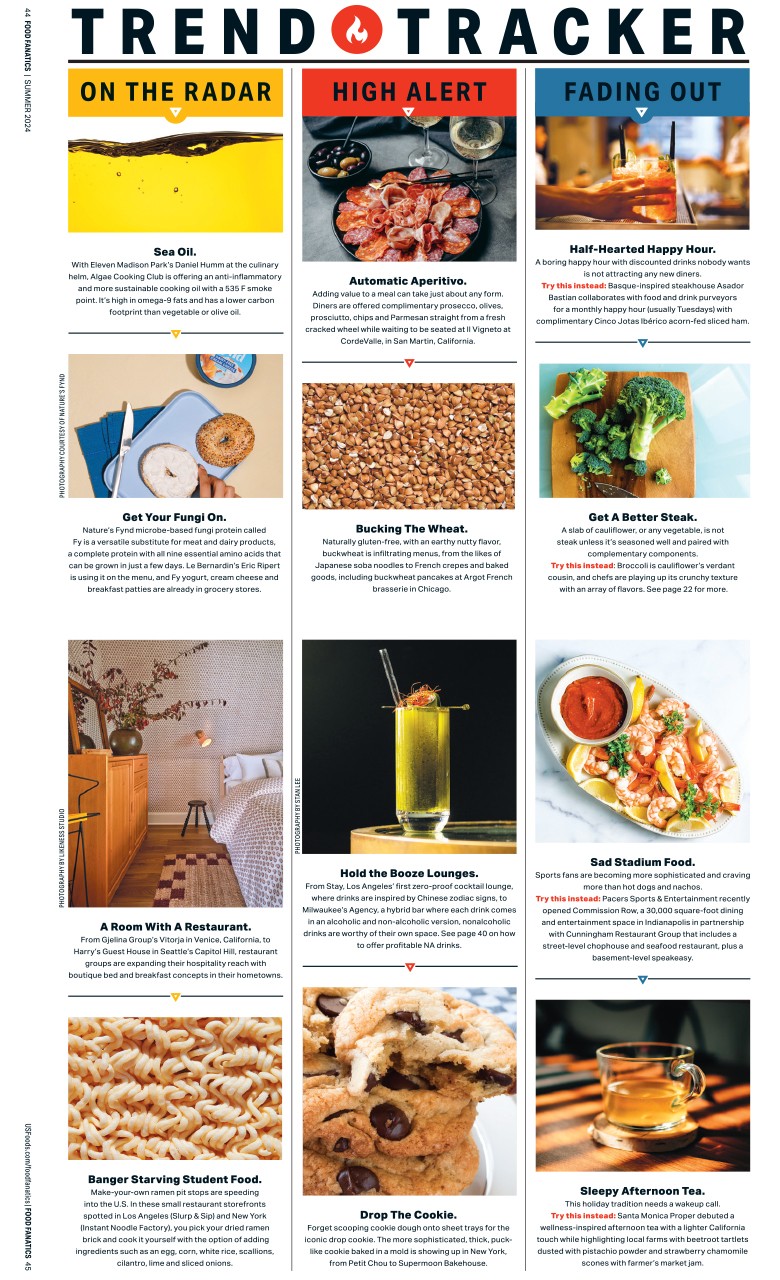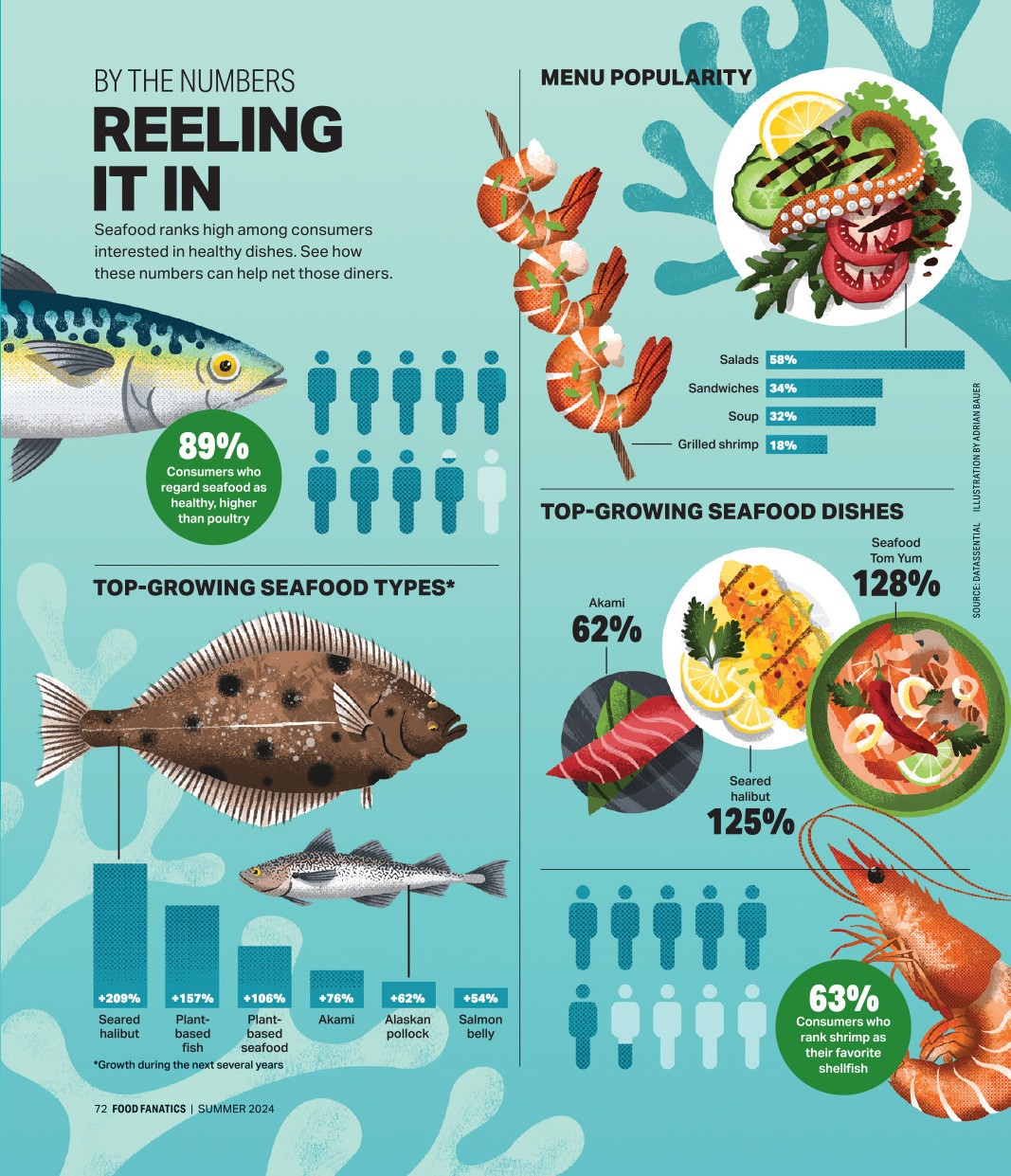Use Functional Foods to Cater to Health-Conscious Diners
Meet consumer health needs through the benefits of certain foods
In the never-ending pursuit of the proverbial magic bullet, consumers are turning to food to meet the latest approach to wellness: eating for a specific health function.
Scientists have been studying higher concentrations of nutritional foods to back their disease-fighting and health-supporting benefits for decades, but consumers only in recent years have begun focusing on it. This presents opportunities for restaurants, says a recent survey by food research firm Datassential.
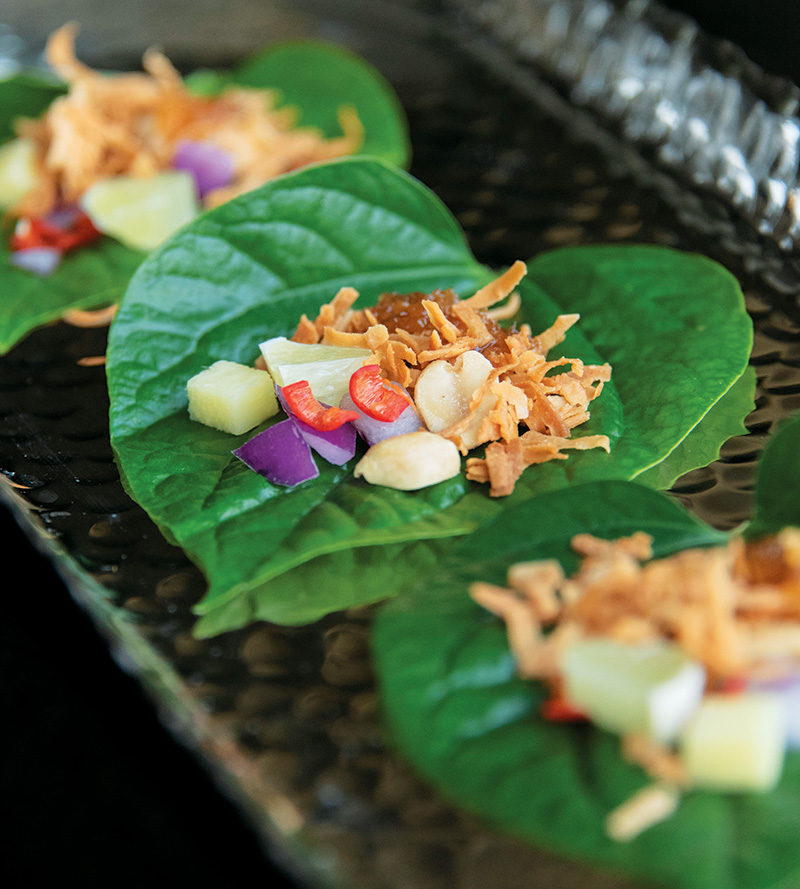
“Functional foods and beverages can drive more revenue and purchases in foodservice,” the study says. “Consumers who are interested in special functional benefits are more likely to purchase items featuring them (and many will even pay more to do so!).
Some 94% of the respondents are interested in functional foods on restaurants menus that lower the risk of cancer while 47% of that figure would pay more. The percentages are similar for heart health and extend longevity.
FEEL GOOD FOOD
 The Datassential study revealed that 57% of consumers regard emotional and mental health as more important today than two years ago, a point that vegan-centric Café Gratitude in Southern California personifies. With three locations, the concept has evolved under the direction of Executive Chef Seizan Dreux Ellis to reflect a more cohesive approach for identifying functional benefits, in part through naming menu items by affirmations. For example, at breakfast there’s “I Am Strong,” a double batch of blueberry protein pancakes with almond ricotta, blueberry compote, maple syrup and cinnamon, as well as “I Am Hearty,” housemade tofu scramble with sauted mushrooms and spinach, cherry tomato confit, breakfast potatoes, sourdough toast and roasted strawberries (gluten-free buckwheat toast can be substituted for a $4.25 upcharge). From the all-day menu, “I Am Beloved,” features barbecue lion’s mane brisket and Brussels sprouts in a butternut mac ’n cheese that includes cashew bechamel, almond burrata, yuzu miso marinade, garlic levain breadcrumbs and gremolata; and “I Am Enthusiastic,” chik’n-fried steak mushroom sandwich with tomato, pickles, romaine, buffalo sauce and ranch dressing on brioche.
The Datassential study revealed that 57% of consumers regard emotional and mental health as more important today than two years ago, a point that vegan-centric Café Gratitude in Southern California personifies. With three locations, the concept has evolved under the direction of Executive Chef Seizan Dreux Ellis to reflect a more cohesive approach for identifying functional benefits, in part through naming menu items by affirmations. For example, at breakfast there’s “I Am Strong,” a double batch of blueberry protein pancakes with almond ricotta, blueberry compote, maple syrup and cinnamon, as well as “I Am Hearty,” housemade tofu scramble with sauted mushrooms and spinach, cherry tomato confit, breakfast potatoes, sourdough toast and roasted strawberries (gluten-free buckwheat toast can be substituted for a $4.25 upcharge). From the all-day menu, “I Am Beloved,” features barbecue lion’s mane brisket and Brussels sprouts in a butternut mac ’n cheese that includes cashew bechamel, almond burrata, yuzu miso marinade, garlic levain breadcrumbs and gremolata; and “I Am Enthusiastic,” chik’n-fried steak mushroom sandwich with tomato, pickles, romaine, buffalo sauce and ranch dressing on brioche.
WEAVE IT IN
First Watch, a Florida-based chain of breakfast, brunch and lunch restaurants, offers plenty of indulgent items but it also dedicates menu real estate to the “Healthier Side,” which calls out functional dishes. The Power Wrap, which would appeal to consumers cutting fat, and seeking heart health and denser nutrients, features cage-free egg whites, turkey, spinach, house-roasted cremini mushrooms and mozzarella in a sun-dried tomato basil tortilla.
There’s also a section titled “Power Bowls.” Pesto Chicken Quinoa Bowl brings together “protein-packed quinoa, kale, shredded carrots and house-roasted tomatoes topped with all-natural chicken breast, basil pesto sauce, lemon white balsamic dressing, feta cheese and fresh herbs.”
BRAIN MATTERS
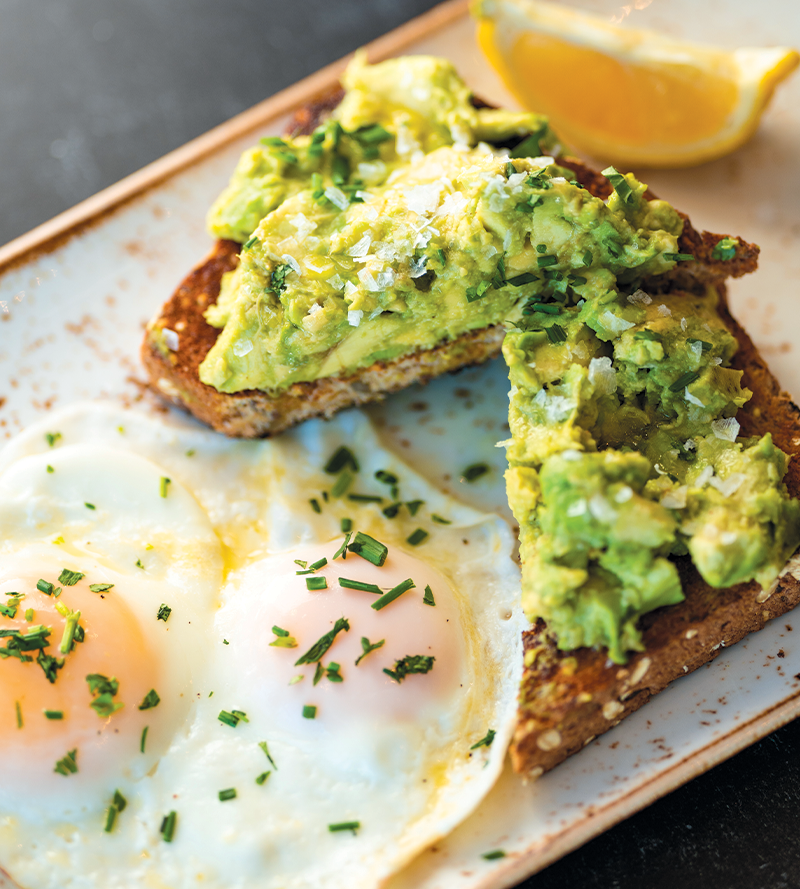 Honeybrains, which positions itself as the “first hospitality brand dedicated to brain health,” is expanding after CEO and cofounder Marisa Seifan opened the first location in New York’s Noho neighborhood in 2016 and followed up with three more locations. Unlike most restaurants, Honeybrains is direct in its approach: “… translate the growing scientific research about brain health into enjoyable and accessible foods, drinks, nutrient-based supplements and other products that can help people live happier, longer and healthier lives.”
Honeybrains, which positions itself as the “first hospitality brand dedicated to brain health,” is expanding after CEO and cofounder Marisa Seifan opened the first location in New York’s Noho neighborhood in 2016 and followed up with three more locations. Unlike most restaurants, Honeybrains is direct in its approach: “… translate the growing scientific research about brain health into enjoyable and accessible foods, drinks, nutrient-based supplements and other products that can help people live happier, longer and healthier lives.”
The omnivore menu descriptions don’t call out specific functions. Instead, it relies on consumers recognizing healthful ingredients. The cobb salad, for example, features chicken, turkey bacon, an 8-minute egg, avocado, tomatoes, walnuts, chickpeas and blue cheese – ingredients that check the boxes for a variety of functions, such as heart, brain and gut health – with unsaturated fats, high fiber and omega-3 fatty acids.
The Brain Bar, however, is specific and echoes Seifan’s philosophy published on her website. “Substituting processed sugars with natural sweeteners such as raw honey is a simple way to improve your brain health.”
Drinks with an intended function and explanation include “Memory,” which brings together pear, green apple, orange, carrot, lemon, fiber gum, ginger and rosemary extract and a description: “To make memories, our brain cells rely on a neurotransmitter called acetylcholine that helps neurons connect. Herbs such as rosemary may improve human memory by making more acetylcholine. When digested, rosemary also stimulates synapses for better communication and retention of new information. Citrus, veggies and fiber have been added to allow for better nutrient absorption.”
TAKING A FUNCTIONAL ETHOS
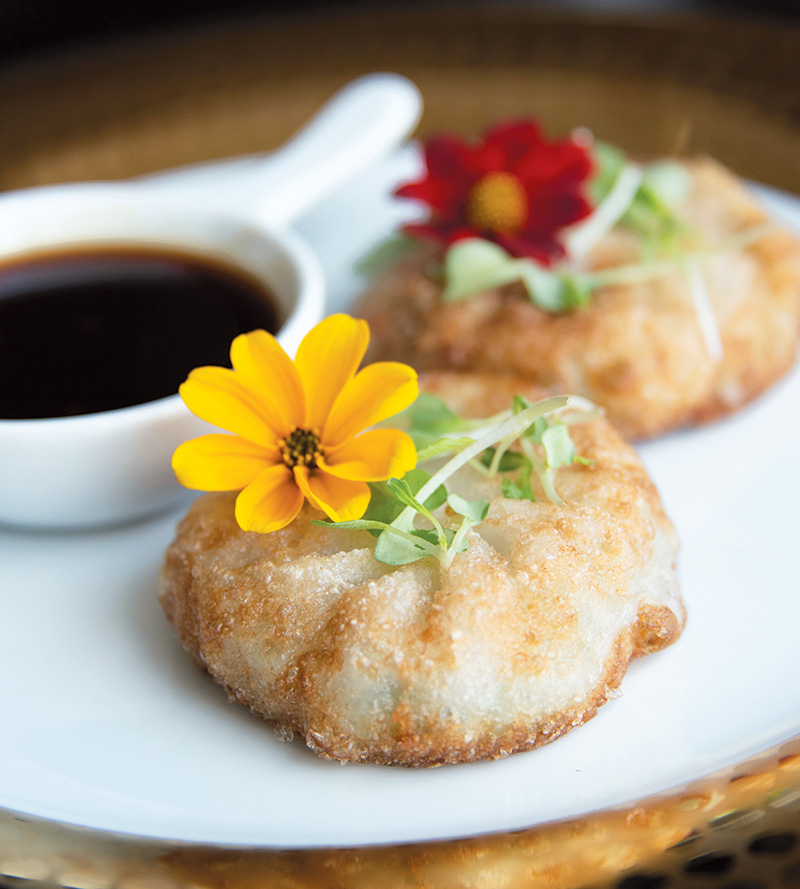 For the most part, restaurants rely on consumers to know the function they want but Panthipa “Patty” Neusom, chef-owner of Herb in Chicago, embodies the Hippocrates adage, “Let food be thy medicine and medicine be thy food” and makes it clear on her website landing page.
For the most part, restaurants rely on consumers to know the function they want but Panthipa “Patty” Neusom, chef-owner of Herb in Chicago, embodies the Hippocrates adage, “Let food be thy medicine and medicine be thy food” and makes it clear on her website landing page.
“Eating healthy doesn’t mean sacrificing flavor,” says Neusom, who grew up in Thailand and integrates her beliefs in holistic medicine, the power of herbs and microgreens with her culinary approach to Thai food.
Neusom layers ingredients for contrasting flavors and textures along with cooking methods that keep dishes light but satisfying. Calling them “holistic meals,” her affordably priced tasting menus are available with or without meat and á la cart ($58 for five courses, up to $98 for nine courses). Each option begins with fresh batal leaves native to Southeast Asia which have been used in Ayurvedic medicine for their antioxidant and anti-inflammatory benefits. Each leaf is topped with toasted coconut, ginger, shallots, lime, chili, peanuts and a palm sugar sauce for a burst of salty, sweet, herbaceous and spicy bite.
A recent menu item also includes Turmeric Trio Mushroom Soup made with oyster, king and shimeji mushrooms pureed smooth and poured over tomato, dill and coriander.
“My customers know I cook what I love and that the food has health benefits but what’s most important, which have kept them loyal and keep them coming back, is that they tell me everything tastes delicious,” Neusom says.


